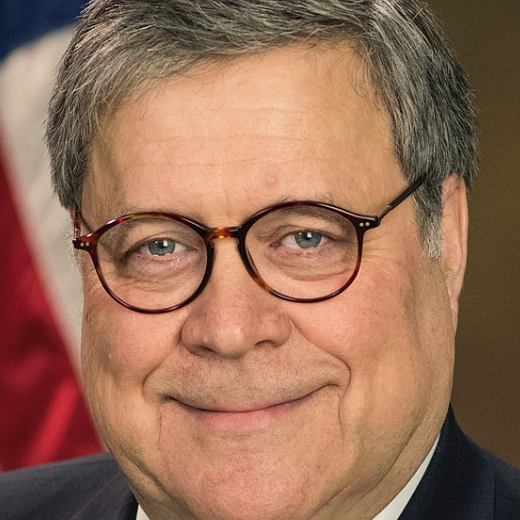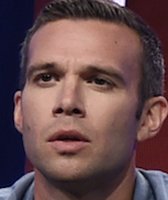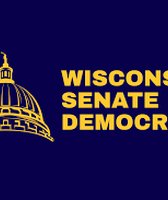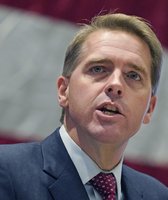Stand up for the facts!
Our only agenda is to publish the truth so you can be an informed participant in democracy.
We need your help.
I would like to contribute
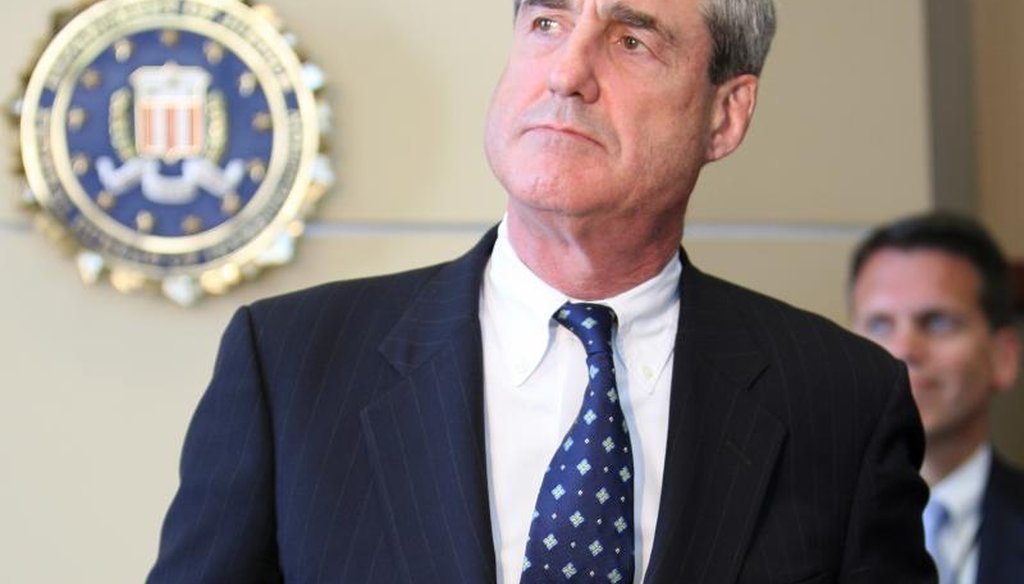
Former FBI Director Robert Mueller was named special counsel by the U.S. Department of Justice to lead the investigation into Russian meddling in the 2016 election. (Tampa Bay Times file)
U.S. Attorney General Bill Barr issued a four-page summary of Special Counsel Robert Mueller’s key findings nearly a month before publicly releasing an estimated 400-page redacted version of Mueller’s report.
Barr’s March 24 summary outlined what he called Mueller’s "principal conclusions" on the investigation of Russia’s interference in the 2016 presidential election, whether the Trump campaign conspired in those efforts and if President Donald Trump obstructed justice.
Barr’s summary included a few direct quotes from Mueller’s report that were enough to prompt Trump to claim "complete vindication," and for Democrats to demand a quick release of the full report.
Now that the report is public, here’s broader context surrounding the quotes that Barr included in his summary. Worth noting: The report said "a statement that the investigation did not establish particular facts does not mean there was no evidence of those facts." In other words, available evidence was not enough to make a conclusion, and Mueller is not claiming to have exhausted every possible line of investigation.
ON COLLUSION
Barr’s summary: As the report states: "the investigation did not establish that members of the Trump Campaign conspired or coordinated with the Russian government in its election interference activities."
Sign up for PolitiFact texts
Barr’s summary left out that Mueller’s report said it identified "numerous links" between Trump’s campaign and Russia, and that the campaign expected to benefit from Russia’s efforts. Here’s what precedes the quote that Barr included in his summary.
Mueller’s report: "The investigation also identified numerous links between the Russian government and the Trump Campaign. Although the investigation established that the Russian government perceived it would benefit from a Trump presidency and worked to secure that outcome, and that the Campaign expected it would benefit electorally from information stolen and released through Russian efforts, the investigation did not establish that members of the Trump Campaign conspired or coordinated with the Russian government in its election interference activities."
ON OBSTRUCTION
Barr’s summary: "Instead, for each of the relevant actions investigated, the report sets out evidence on both sides of the question and leaves unresolved what the Special Counsel views as ‘difficult issues’ of law and fact concerning whether the President's actions and intent could be viewed as obstruction. The Special Counsel states that ‘while this report does not conclude that the President committed a crime, it also does not exonerate him’. "
Mueller’s report: The "difficult issues" and the verbiage about not exonerating Trump appear at least three times in the report. The first time they appear is in the introduction to the volume that discusses the obstruction of justice investigation. They are later repeated under "conclusion" subheads.
Additional context to the quote affirms that Mueller did not definitely conclude that Trump did not obstruct justice.
The report states: "Fourth, if we had confidence after a thorough investigation of the facts that the President clearly did not commit obstruction of justice, we would so state. Based on the facts and the applicable legal standards, however, we are unable to reach that judgment. The evidence we obtained about the President's actions and intent presents difficult issues that prevent us from conclusively determining that no criminal conduct occurred. Accordingly, while this report does not conclude that the President committed a crime, it also does not exonerate him."
The other two times "difficult issues" and the fuller quote appear is in conclusion subheads that both say:
"Because we determined not to make a traditional prosecutorial judgment, we did not draw ultimate conclusions about the President's conduct. The evidence we obtained about the President's actions and intent presents difficult issues that would need to be resolved if we were making a traditional prosecutorial judgment. At the same time, if we had confidence after a thorough investigation of the facts that the President clearly did not commit obstruction of justice, we would so state. Based on the facts and the applicable legal standards, we are unable to reach that judgment. Accordingly, while this report does not conclude that the President committed a crime, it also does not exonerate him."
Barr’s summary: Barr’s letter is terse in suggesting the president did not obstruct justice: "In making this determination, we noted that the Special Counsel recognized that ‘the evidence does not establish that the President was involved in an underlying crime related to Russian election interference,’ and that, while not determinative, the absence of such evidence bears upon the President's intent with respect to obstruction."
Mueller’s report: Mueller’s report suggests other motives for the president’s conduct, including fear of investigation: "In this investigation, the evidence does not establish that the President was involved in an underlying crime related to Russian election interference. But the evidence does point to a range of other possible personal motives animating the President's conduct. These include concerns that continued investigation would call into question the legitimacy of his election and potential uncertainty about whether certain events—such as advance notice of WikiLeaks's release of hacked information or the June 9, 2016 meeting between senior campaign officials and Russians—could be seen as criminal activity by the President, his campaign, or his family."
Our Sources
PolitiFact, Read Attorney General William Barr's summary of Special Counsel Robert Mueller's report, March 24, 2019
PolitiFact, Fact-checking Donald Trump’s Grand Rapids rally after the Mueller probe, March 29, 2019
PolitiFact, Read the redacted Mueller report, April 18, 2019
Justice Department, Report On The Investigation Into Russian Interference In The 2016 Presidential Election, redacted report released April 18, 2019


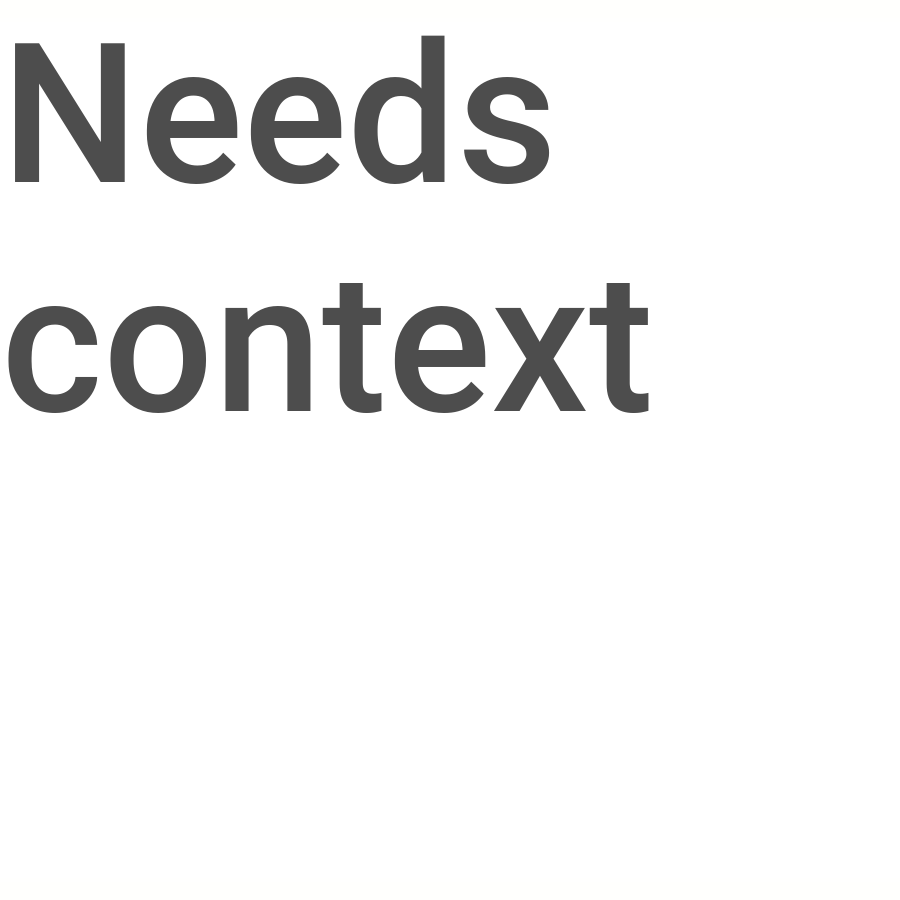 PolitiFact Rating:
PolitiFact Rating: 